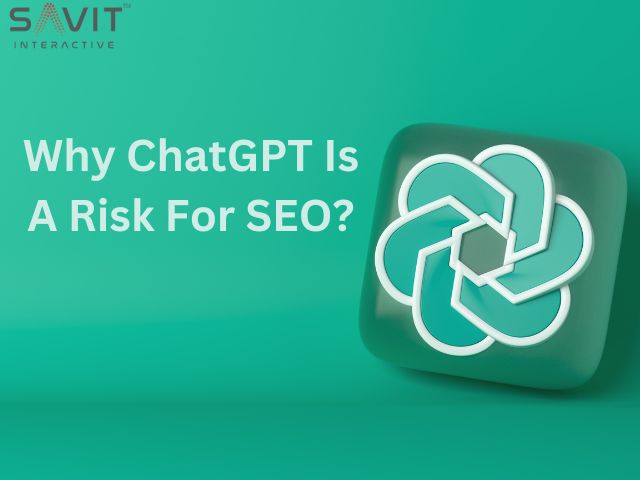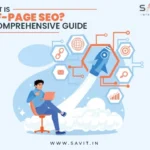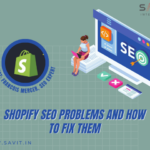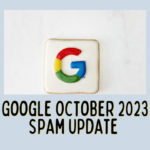A sort of machine learning known as ChatGPT has the ability to learn language models, so it can produce content in whatever language we choose.
Why is ChatGPT Content Bad for SEO?
Google would develop more and more algorithms that can comprehend and detect ChatGPT Content and could penalise websites that use it as ChatGPT increases and begins to produce more and more content that is difficult to distinguish from human-written content and is SEO Friendly. With upgrades like the Helpful content update and Spam update, which concentrates on detecting AI-generated or duplicated content, Google has already forewarned about the risk of ChatGPT content on the website.
What is the function of ChatGPT for SEO?
If you ask Chat GPT how you can utilise it for SEO , it will respond as follows: “ChatGPT can be used for SEO by producing top-notch content for blogs and websites. By offering valuable, educational content that is keyword-optimised, can aid in improving search engine rankings. Serious problems with this self-proclamation by Chat GPT are explained in the later parts of the post.
If you ask Chat GPT a question about its own use cases that is more general and describes how a marketer might use Chat GPT, it will say:
Product descriptions, ad text, and other sorts of marketing content can all be created by marketers using ChatGPT. Additionally, it can be used to create automatic and personalised responses to consumer enquiries, which could enhance engagement and customer service.
The following are some possible marketing applications for ChatGPT:
- Creating ad content and product descriptions
- Automated and personalised customer service replies
- Creating chatbot scripts to interact with customers
- Developing interesting social media posts
- Producing interesting and educational material for websites and blogs
- Developing customised email campaigns
- Content creation and SEO optimisation
The following list contains some ideas for how identified a method for detecting ChatGPT content:
1. ChatGPT content may be revealed by algorithmic watermarking.
It is possible to identify content created on ChatGPT for SEO using a technique known as algorithmic watermarking. When ChatGPT content is developed, it appears sincere and original to people, but it has a pattern—a pattern of words that Google will eventually be able to recognise. Google may penalise us if we utilise ChatGPT to develop content and submit it to the website since we violated their webmaster guidelines.
Google’s John Mueller commented about material created by AI and machine learning,” In the Webmaster Guidelines a category related to this is virtually existing from the beginning, which implies that these would essentially be considered automatically generated material.
People have been using different ways to create material automatically. For us, it doesn’t really matter whether you use machine learning methods to create your content or whether you simply rearrange the words, seek up synonyms, or utilise translation heuristics that people used to do. Those sorts of things. My assumption is that the content’s quality is perhaps a little higher than it was with the truly antiquated tools, but for us, it’s still automatically created content, thus it continues to violate the Webmaster Guidelines. Therefore, we would classify such as spam.”
2. AI Content Can Be Found
An online search engine is more likely to find earlier NLG variants like GPT and GPT-2. Due to their similarities to more basic versions, such as GPT-3, more advanced models might be challenging to distinguish to human conduct. The technology will only advance with time, but that should also be true of Google’s bots, which brings us to the catch. When GPT and GPT 2 were in use in the past, Google did identify through AI detection tools and penalise websites that utilised GPT material.
3. Google’s Helpful Content Update Penalised Case Study AI content.
A case study of how Google discovered a website that had been getting decent traffic for nine months before a penalty caused a sharp decline in traffic.
Moving on with the topic here are a few reasons we think we shouldn’t use ChatGPT right away, but rather wait for Google to respond to individuals using this information before moving forward with using it on the website.
Possibilities for using ChatGPT material
- Meta description and title description
- off-page optimisation
- designing schemas
- Guest blogs are also quite problematic because Google’s link spam upgrade emphasises quality material on those backlinks in addition to high-quality backlinks.
Savit Interactive is a leading digital marketing agency that works on the SEO of your website in accordance with the business module and goals. In addition to high-quality Search engine optimization, a dedicated team of experts work on the content that is unique and original without compromising on the quality.
4. Chat GPT answering a question in a surprisingly endearing, moral, and self-aware manner for a robot:
The response is poorly written. The content flows poorly and is difficult to read as a result of the repetitious and dull conjunctive words, phrases, and language utilised. There are two things that should be emphasised: Well, there are 182 words there that provide a straightforward response. The response is tedious, repetitious, and poorly written. People who use Chat GPT for SEO and their websites are probably experimenting with and releasing thousands of words of material that users and Google will read and evaluate you for.
In contrast to the responses, it gives in just 30 seconds when asked what the benefits of utilising Chat GPT for your SEO were, Chat GPT’s warnings regarding the risks of using it for SEO reasons. How can something be beneficial if every single benefit is shrouded in red tape that says, “do not use”? The current intelligence cap of Chat GPT’s artificial intelligence can be shown in this particular instance. Stop utilising Chat GPT to create FAQs, replies, or material for your website.








































